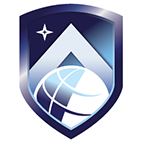Master of Science in Nursing – Nursing Education
Transform nursing experience into teaching experience with an affordable MSN.
Do you dream of sharing your knowledge and passion with the next generation of nurses? Shape the future of healthcare with your MSN in Nursing Education. The MSN Nursing Education program equips students with the foundations for student or staff instruction; a comprehensive education grounded in nursing theory and research; practical knowledge of legal and ethical issues in healthcare; specialized skills in areas such as teaching strategies and curriculum development; and preparation for a wide variety of employment opportunities. Our graduates excel while working in hospitals, universities, long-term care facilities, community centers and corporate and philanthropic organizations.
Aspen MSN Nursing Education graduates can:
- Develop and manage interactive and engaging nursing curriculum
- Implement educational methods
- Evaluate and revise educational resources, courses, and programs
- Measure learning outcomes
- Integrate evidence-based theories to support critical thinking
- Prepare nurses for clinical and academic roles
- Assess health needs of diverse populations for educational purposes
- Facilitate learner development and socialization
- Analyze evidence to guide student learning and assessment strategies
- Use technology to teach
The Master of Science in Nursing program at Aspen University is accredited by the Commission on Collegiate Nursing Education.
Enjoy Flexibility– 12 online courses with program start dates every 2 weeks
Choose Where You Learn– Online courses with a local practicum
Affordable Monthly Payments
Focus on Your Passion– Choose your practicum project
Practicum courses are performed within a clinical practice or academic setting allowing students to apply concepts under the direct supervision of a Preceptor. Aspen’s Office of Field Experience offers additional support for MSN students during the practicum process.
Aspen also offers online RN to MSN programs for nurses without a BSN degree.
Why More Nurses Are Choosing Aspen


MSN Nursing Education Courses
Aspen’s MSN curriculum features 12 courses designed to equip you with advanced nursing skills. Taught by experienced nurse educators from diverse healthcare settings, you’ll have the opportunity to apply new knowledge directly to your practice through the integration of your MSN practicum project.
View the course schedule for this program: MSN Nursing Education Degree Plan
-
N502 - Health Care Systems
-
N580 - Issues in Nursing Education
- Theory and Research for Academic Nurse Educators: Application to Practice - 9780763774134
- Publication Manual of the American Psychological Association (7th Edition) - 9781433832154
- Nurse as Educator (5th Edition) - 9781284127201
- Teaching in Nursing E-Book: A Guide for Faculty (6th Edition) - 9780323554725
- The Scope of Practice for Academic Nurse Educators and Academic Clinical Nurse Educators (3rd Edition) - 9781975151928
-
N512 - Diverse Populations & Health Care
-
N520 - Legal and Ethical Issues in Health Care
-
N510 - Advanced Pathophysiology
-
N511 - Advanced Pharmacology
-
N518 - Advanced Physical Assessment
-
N582 - Teaching Strategies in Nursing Education
-
N584 - Curriculum Development, Implementation and Evaluation
-
N508 - Theory and Research
-
N586NE - Nurse Education Nursing Practicum
-
N599 - Nursing Capstone
This graduate-level course introduces students to the historical development, structure, operation, and current and future directions of the major components of the American health care delivery system. It reviews the historical evolution of the health care system's features and examines the ways in which health care services are organized and delivered, the influences that affect health care public policy decisions, factors that determine priorities for the allocation of health care resources, and the relationship of health care costs to measurable benefits. The course enables students to assess the role of organized efforts to influence health policy formulation, and the contributions of medical technology, research findings, and societal values on our evolving health care delivery system.
3 CreditsRequired Books
This graduate level course explores foundational principles of the scholarship of teaching as the basis for examining the role of the nurse educator in academic, clinical, and community settings. Characteristics of learners with diverse learning styles and backgrounds are explored, with emphasis on assessing learning style preferences, critical thinking abilities, and literacy. Current trends in nursing education are examined, including the evolving role of technology, the influence of demographics, and educational policies that impact the learner, the teacher, and the learning environment. This course concludes with an analysis of legal and ethical issues that relate to client/staff education as well as the academic performance of students.
3 CreditsRequired Books
This graduate-level course provides an in-depth study of cultural diversity, delineating ethnocultural congruent health-care practices in a pluralistic society. Assessment, planning, and interventions for health promotion and maintenance, illness and disease prevention, health restoration, and health policy are explored. The course examines the meanings of health and illness across ethnocultural groups and communities.
3 CreditsRequired Books
This graduate-level course focuses on the legal and ethical rights, responsibilities, and obligations of the practicing nurse in a changing health environment. It is intended to provide graduate nursing students with the theory, knowledge and application necessary to deal with pressing legal and ethical issues in nursing practice. Learners will develop a framework for working through increasingly complex legal and ethical issues that affect nurses. This framework and broadened perspective will help practitioners recognize and respond to dilemmas within diverse health care settings and nursing roles. This course will provide an overview of regulatory action and the legislative and judicial processes, enabling learners to become familiar with changes affecting the health care system such as patient rights, technological advances, and managed care. Within an ethical framework, ethical and professional issues affecting the individual, the practice of professional nursing, and the profession will be explored.
3 CreditsRequired Books
This graduate-level course focuses on developing advanced knowledge of human pathophysiological functions and responses to altered conditions, and includes integration of this knowledge into evidenced-based nursing practice. The focus is on frequently encountered primary care conditions across the general lifespan and for special populations. This course will prepare students to function in advanced practice and nurse educator roles by providing an in-depth understanding of pathophysiologic processes, enabling the student to predict clinical manifestations, select evaluative studies, initiate appropriate therapies, and anticipate potential complications. Insights into the underlying disease process will prepare the practitioner and educator for integration of new and innovative interventions, pharmacotherapeutics, analysis of risk factors, and associated signs and symptoms. Appropriate screening and diagnostic testing methods will also be included. Emphasis will be placed on important pathophysiological concepts needed to support the goals of Healthy People 2020 to improve clients’ quality of life and reduce health disparities. Additionally, this course will address the pathophysiologic needs of communities and individuals in emergency and disaster settings.
3 CreditsRequired Books
This graduate level course focuses on developing advanced knowledge of pharmacology and pharmacologic responses. A deeper look will be taken at cultural, social, genetic, and other issues that impact patient decisions regarding pharmacologic treatment. Students will be prepared to address common herbal and alternative therapies utilized by patients. Also included in the course is a discussion of the role of the nurse in the process of approvals for new pharmacologic treatments and in the coordination of medication distribution. Application will be made to disaster and emergency management and the role of the nurse in the multidisciplinary team under these circumstances.
3 CreditsRequired Books
This graduate level course focuses on advanced health/physical assessment and includes the comprehensive history, physical, and psychological assessment of signs and symptoms, pathophysiologic changes, and psychosocial variations of the patient (individual, family, or community). This course will prepare students by providing an in-depth knowledge of core general assessment content, in addition to geriatric, pediatric, genetic, social, cultural, and community-specific needs. Appropriate screening and diagnostic testing methods will also be included. Content knowledge will be reinforced through a series of virtual reality patient encounter simulations. This will culminate with a precepted virtual reality comprehensive physical assessment.
3 CreditsRequired Books
This graduate level course introduces the principles of teaching and learning among a diverse population of learners in academic and clinical environments. A variety of strategies to facilitate learning in cognitive, psychomotor and affective domains will be explored. Students will develop learning activities for the traditional, non-traditional and online learning environments in academic and clinical settings, utilizing evidence-based resources to support teaching and learning. Integrating educational technology within the learning environment is also a component of the course. Various methods for designing, conducting, and analyzing assessments and evaluations of learning outcomes will be appraised.
3 CreditsRequired Books
This graduate level course focuses on designing nursing curriculum in diverse learning environments using evidence-based theories and concepts as well as relevant standards and criteria for evaluation. The relationship of nursing curriculum to the parent institution’s mission and philosophy is analyzed. Development, implementation and evaluation of a continuing education program for staff, patient or public education also is emphasized.
3 CreditsRequired Books
This graduate-level course in theory and research for advanced nursing practice is designed to develop and refine the knowledge and skills necessary to critique theory and research from nursing and related fields. The focus of this course is on the examination of the research process with applicability to advanced nursing practice. Emphasis is placed on the critique, evaluation, and utilization of nursing and related research that applies to advanced nursing practice and a comprehensive approach to care. Ethical and technological aspects of scholarly inquiry are explored. This course supports the development of the research design, theoretical framework, methods of analysis, and creating an abstract for the capstone project proposal.
3 CreditsRequired Books
This graduate-level course focuses on the Nursing Education specialist role through the application of theoretical concepts and strategies for a selected audience and the implementation of a quality improvement project in a health-related setting. Emphasis is on effective communication and sensitivity to varying needs of the audience. The Nursing Education specialist role will be analyzed and applied in collaboration with a master’s prepared nurse preceptor with experience in this specialty. Evidence-based strategies will be developed into a comprehensive project to engage learners in active learning and implemented to meet mutually determined outcomes. The student will complete an annotated bibliography and the project activities might include, but are not limited to: creating toolkit of resource references, developing a presentation, creating a survey to measure satisfaction with activity, attending professional meetings, writing a publishable article, presenting a topic to patients, creating a webinar, delivery of training modules, developing software to meet a need, developing an advocacy agenda or tool, or proposing a change in practice, process or procedure. This course requires a total of a minimum 120 hours of Nursing Education practicum experience within a practice environment, must include inter-professional collaboration and a minimum of 20 hours (included in the 120 hours) of direct-care experience. Finally, the student will complete the MSN program’s Comprehensive Examination during module seven of this course.
3 CreditsRequired Books
The purpose of this individualized learning experience is to enable you to develop an original comprehensive nursing research project on a topic of professional or personal interest. This project-based course is intended to enable you to research, design and develop a substantial original applied project of your own authorship. This project is intended to encourage the application of theories, principles, and processes that you have studied in the Aspen graduate courses to an actual nursing related problem or issue of interest and relevance to you in your professional activities. PLEASE NOTE: Students cannot start the Capstone concurrently with the Practicum, as the Capstone is based upon the data collected from the Practicum.
3 CreditsRequired Books
For more information about the program, see the Academic Catalog.
“The professors at Aspen University helped me achieve my academic goal by providing continuous support and scaffolding professional relationships that positively impacted my mental and emotional health. Aspen University paved the way for me to attain my professional goals. Holding a higher credential established my credibility, expanded my professional network, and advanced me to a higher position.”
Jaime C.
MSN Nursing Education, graduated August 2023Cost & Time to Completion
The Best Fit for Working Nurses
We understand the difficulties in pursuing your MSN when you have a demanding work schedule. The 8-week courses at Aspen University allow you to complete your program in as little as 24 months.
Our Monthly Payment Plan Makes Us Different.
Paying for your MSN shouldn’t be complicated. Our Monthly Payment Plan makes it easy for working nurses to finance their MSN program.
Pay $415 per Month
The monthly payment plan is a private education loan with a 0% fixed rate of interest (0% APR) and no down payment. Each month you’ll make one payment of $415 for 43 months.
Tuition Rates
| $15,480 | Tuition |
| $2,225 | Fees |
| $1,800 |
Estimated
Textbook
Costs
|
| $19,505 | |
Other Ways to Finance Your MSN

Students who have served, or are currently serving in the United States Military and their legal spouses are eligible to receive a Military Affiliation Discount from Aspen University.

Aspen University is currently approved by the U.S. Department of Education to offer federal student aid for the MSN program.

Aspen University maintains employee tuition discount partnerships with a large and growing number of organizations. Tell your enrollment advisor where you work and ask them to check for you prior to enrolling.

Aspen offers several payment plans for students to fund their education.
Other Ways to Finance Your MSN

The baccalaureate degree program in nursing, the master’s degree program in nursing, and the Doctor of Nursing Practice program at Aspen University are accredited by the Commission on Collegiate Nursing Education.
Erin T.,
MSN Nursing Education, graduated May 2021Admission Requirements

Application – A completed application; Aspen does not charge an application fee

Registered Nurse Licensure – Current, unrestricted licensure as a registered nurse in the United States, a US territory, or Canada. Registered nurses licensed outside of these areas are not eligible.

Bachelor of Science in Nursing – Official Transcript demonstrating a bachelor’s degree in nursing from an institution that is accredited by a CHEA recognized accrediting body or an international equivalent; applicants must have earned at least a 2.5 GPA in their BSN program (see Catalog for more information)

Nursing Experience – A minimum of one year of nursing experience completed within the past five years.

Government-Issued Photo Identification – Identification must be valid, current, and legible.
Career Outlook
Nursing is a unique career field that provides opportunities in a variety of settings and patient populations. The U.S. Bureau of Labor Statistics identifies that the job outlook from 2022-2033 is 6% faster than average with an anticipated 194,500 nursing jobs projected annually.
The American Association of Colleges in Nursing (AACN) reported that 82% of new MSN graduates had a job offer at the time of graduation and 95% of MSN graduates had a job offer within 6 months of graduation.
The nurse educator prepares current nurses and the next generation of nurses to improve patient care. Nurse educators are employed in a variety of settings including nursing programs, clinical settings, technical schools, and inpatient/outpatient facilities. Nurse educators are responsible for designing, implementing, evaluating, and revising educational programs for nurses.
Average Annual Salary for MSN-prepared Nurses
$120,870
Data pulled from NursingProcess.org in Fall 2024. Salary can vary widely depending on geographical location and role.
MSN Frequently Asked Questions
-
What is the MSN degree?
-
What are the differences between the RN to MSN program and the MSN program?
-
Is Aspen’s MSN program accredited?
-
Can I finish my MSN degree online?
-
What specialties are offered in the MSN degree program?
-
Can multiple specialties within the MSN program be completed simultaneously?
-
Does Aspen help with locating a preceptor and site to complete hours?
The Master of Science in Nursing degree is a graduate degree that prepares nurses for specialties in their selected area of healthcare.
The RN-MSN program is available for RNs who do not hold a bachelor of science degree in nursing (BSN). The MSN direct-entry program is available for RNs who have obtained their BSN degree.
Yes, the MSN program is accredited by the Commission on Collegiate Nursing Education.
Yes, Aspen’s MSN degree programs are completed online. There is a 120-hour practicum course associated with each specialty that requires a preceptor supervisor.
Yes, Aspen’s MSN degree programs are completed online. There is a 120-hour practicum course associated with each specialty that requires a preceptor supervisor.
No, students can only complete one specialization.
Many students utilize their workplace to identify their preceptor and site location. Aspen’s Office of Field Experience (OFE) is also available to support students with obtaining approval from their preceptor, site, and collaborating to identify alternative locations as needed.


